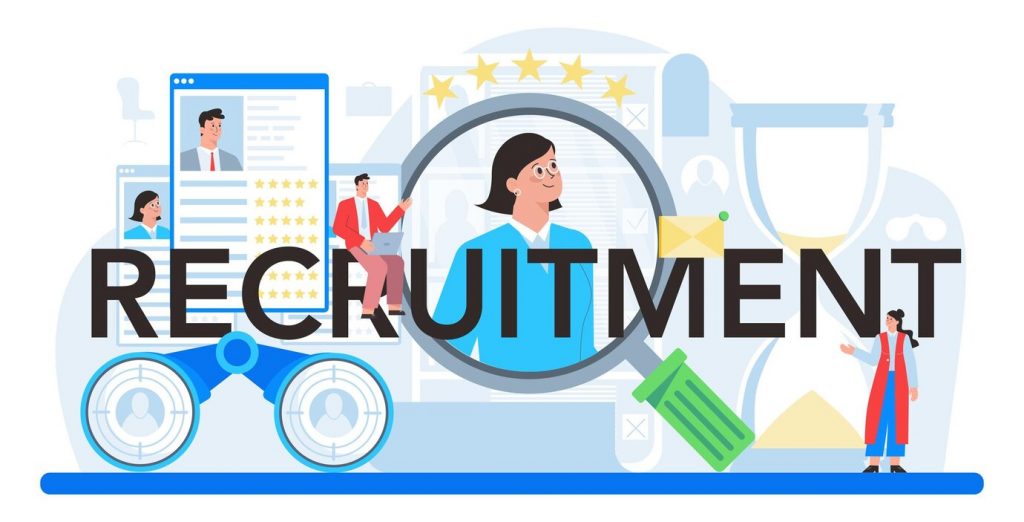Introduction
Hiring is broken, but Interview as a Service (IaaS) fixes it. Traditional recruitment processes are slow, inconsistent, and often riddled with bias. In contrast, IaaS in 2025 redefines how companies assess talent by providing on-demand, expert-led interviews that enhance efficiency and objectivity. As organizations adapt to global trends in HR practices, they are increasingly turning to IaaS to scale hiring efforts, streamline assessments, and deliver a superior candidate experience. The surge in AI-driven hiring trends and digital hiring trends is accelerating this transformation, making IaaS an indispensable tool for modern enterprises.
AI and automation are no longer futuristic concepts—they are the foundation of hiring today. Companies that once relied on traditional interviews now embrace Interview Services in 2025 powered by real-time analytics, skill-based assessments, and AI-driven insights. Global trends in HR are shifting toward data-backed decision-making, enabling organizations to reduce hiring bias, improve candidate matching, and optimize workforce planning. In this landscape, IaaS platforms serve as the bridge between technology and human expertise, ensuring that companies can scale their recruitment efforts without sacrificing quality.
Competition for top talent is fiercer than ever, and speed is the new currency of hiring. Businesses that fail to adopt IaaS in 2025 risk falling behind as the best candidates are secured faster by competitors leveraging AI-driven interviews and on-demand expertise. As enterprises focus on agility and efficiency, IaaS is emerging as the go-to solution for reducing time-to-hire while maintaining a high standard of candidate evaluation. This blog explores the key trends shaping IaaS, the impact of technology on hiring, and why forward-thinking organizations must integrate these innovations into their recruitment strategies.
Also Read: AI in HR Functions: Transforming Talent Acquisition and Employee Management
Technological Advancements
AI is no longer an enhancement—it’s the backbone of modern hiring. Companies leveraging AI-driven hiring trends are transforming recruitment by automating scheduling, analyzing candidate responses, and predicting job performance. AI-powered platforms go beyond simple question-and-answer formats—they assess tone, language patterns, and non-verbal cues to provide deeper insights into a candidate’s suitability. In Interview Services in 2025, AI will not only conduct structured interviews but also dynamically adapt questions in real-time, tailoring assessments based on a candidate’s responses. As companies pursue data-driven precision, AI-driven interviews are becoming the gold standard in talent evaluation.
Interviews are stepping into the virtual world. The rise of digital hiring trends is bringing VR and AR into recruitment, offering immersive, scenario-based assessments. Instead of relying on resumes and traditional Q&A formats, companies can now evaluate candidates in lifelike work simulations that test problem-solving abilities, leadership skills, and adaptability in real time. This is particularly transformative for industries like healthcare, engineering, and customer service, where hands-on experience is critical. As global trends in HR push for more engaging and effective evaluation methods, VR and AR-based interviews will set a new benchmark in hiring.
Also Read: The Future of Hiring: How Interview as a Service is Transforming Recruitment
Automation is eliminating inefficiencies in hiring:
- Manual resume screening is outdated. AI-driven applicant tracking systems now rank and filter candidates at scale, cutting down time-consuming human review.
- IaaS in 2025 will integrate automated screening and assessments, ensuring only top-tier candidates move forward.
- Speed and fairness are key. Automation minimizes human bias and accelerates the hiring process, giving companies a competitive edge.
IaaS platforms will become the command center—blending AI-driven assessments with expert-led interviews for a seamless, data-backed hiring process.
From AI-driven assessments to VR-powered simulations and automated screenings, Interview Services in 2025 will be defined by intelligent, scalable, and bias-free hiring. Companies that fail to adopt these technologies risk falling behind as hiring becomes faster, smarter, and more competitive.
Chipotle Mexican Grill Inc. recently leveraged artificial intelligence to revolutionize its seasonal hiring process. Facing the challenge of recruiting 20,000 employees for its busiest period, known as “Burrito Season,” Chipotle implemented an AI assistant named Ava Cado on its recruitment platform.
- Application completion rates soared from 50% to 85% after AI implementation.
- Hiring speed increased—average processing time dropped from 12 days to just 4.
- AI-driven hiring trends streamlined recruitment, reducing inefficiencies.
- Enhanced candidate experience through automated, seamless interactions.
- Chipotle demonstrated the real-world impact of AI in modern hiring strategies.
However, the adoption of AI in hiring is not without challenges. Some applicants have reported frustrations with AI-powered recruitment systems. For instance, candidates experienced issues with AI chatbots scheduling interviews at locations without openings, highlighting the need for continuous refinement of these technologies to ensure accuracy and candidate satisfaction.
These developments underscore the importance of balancing technological innovation with human oversight in the hiring process. As organizations continue to adopt Interview as a Service (IaaS) models, integrating AI thoughtfully can lead to more efficient and effective recruitment, provided that potential pitfalls are proactively addressed.
Also Read: Beyond Gut Feeling: Data-Driven Strategies for Better Hiring Outcomes
Changing Candidate Expectations
Demand for Personalized Interview Experiences
Candidates today expect interviews tailored to their skills, career aspirations, and work styles. Generic assessments are no longer enough—companies are shifting toward personalized experiences that engage candidates more effectively.
- Customized Interview Formats – Recruiters are adopting various styles, including case-based assessments, behavioral interviews, and technical challenges, to better align with job-specific requirements.
- AI-Powered Interview Guidance – AI-driven platforms now personalize interview questions based on a candidate’s background and responses, creating a more interactive and relevant experience.
- Two-Way Evaluations – Candidates want to assess companies just as much as employers assess them. Interactive sessions, job previews, and culture-fit evaluations are becoming standard.
A great example is Unilever’s AI-powered hiring process, which uses gamification and neuroscience-based assessments to personalize the candidate experience. This has led to a 90% reduction in hiring time and a significant increase in candidate engagement.
JobTwine’s role: Platforms like JobTwine are enabling companies to deliver personalized Interview as a Service (IaaS) solutions. By leveraging on-demand interviewers, businesses can ensure candidates engage with industry experts who tailor interviews based on real-world job requirements, leading to better hiring decisions.
Importance of Employer Branding in Attracting Talent
A strong employer brand is no longer optional—it’s a key differentiator in a competitive talent market. Candidates seek transparency, values alignment, and workplace culture insights before accepting an offer.
- Video Introductions – Employers showcase their culture through employee testimonials, virtual office tours, and leadership messages.
- Employee Advocacy – Encouraging employees to share their work experiences on LinkedIn and Glassdoor enhances credibility.
- Mission-Driven Branding – Companies that highlight social responsibility, DEI initiatives, and career growth opportunities attract top talent.
Brother International’s employer branding revamp saw a 140% increase in completed job applications after focusing on employee storytelling and social media engagement.
JobTwine’s role: The hiring process is also an extension of employer branding. JobTwine helps companies maintain consistency in interviews, ensuring that every candidate interacts with a professional, well-trained interviewer. By outsourcing structured, standardized interviews through IaaS in 2025, companies can project a strong, reliable brand while eliminating interviewer bias and inconsistency.
Also Read: AI Legislation in Interview Processes and Its Implications for Organizations
Shift Towards Remote and Flexible Interview Formats
Traditional in-person interviews are becoming obsolete as remote and flexible formats take over. Companies are embracing virtual hiring models to accommodate modern work expectations.
- Video Interviews – Platforms like Zoom, HireVue, and SparkHire enable companies to connect with candidates globally.
- Asynchronous Assessments – Pre-recorded video responses allow candidates to complete interviews at their convenience, speeding up the hiring process.
- Hybrid Hiring Models – Many companies now blend virtual and in-person interviews, providing flexibility while maintaining a personal touch.
Amazon’s virtual hiring model has enabled them to scale hiring globally, reducing costs while improving efficiency. By leveraging AI-powered video interviews, they ensure consistency while evaluating thousands of candidates.
JobTwine’s role: JobTwine is at the forefront of this transformation by offering on-demand expert-led remote interviews. Instead of forcing candidates to adjust to rigid scheduling, JobTwine provides real-time access to professional interviewers, making the hiring process more efficient, scalable, and candidate-friendly.
Adapting to these changing expectations isn’t just about convenience—it’s about staying competitive in a candidate-driven job market. Companies that personalize the experience, invest in branding, and embrace flexibility will lead the future of hiring. With platforms like JobTwine providing Interview as a Service, businesses can scale hiring efficiently without compromising quality, fairness, or candidate experience.
Data-Driven Decision Making
Hiring is no longer a guessing game—data is reshaping how companies evaluate talent. From AI-driven insights to real-time candidate feedback, data is enabling smarter, fairer, and more efficient hiring decisions.
Role of Analytics in Improving Interview Outcomes
Companies are leveraging advanced analytics to enhance interview effectiveness and predict candidate success. AI-driven hiring trends now use machine learning models to assess skills, behavior, and cultural fit with unprecedented accuracy.
- Predictive Hiring Models – AI analyzes past hiring data to identify traits linked to high-performing employees, helping companies make data-backed decisions on candidate selection.
- Interviewer Performance Analytics – Companies track interviewer consistency, bias, and effectiveness to ensure fair and structured evaluations across all candidates.
- Real-Time Insights – Dashboards provide instant feedback on candidate performance, allowing recruiters to adjust hiring strategies dynamically.
Case Study: IBM’s AI-Driven Hiring – IBM uses AI-powered analytics to assess candidates based on skills and job fit rather than resumes. This has cut hiring time by 30% and increased new hire retention by 50% by focusing on data over gut instinct.
JobTwine’s role: JobTwine’s Interview as a Service (IaaS) model integrates real-time analytics to assess interviewer effectiveness, candidate responses, and hiring trends. Companies using JobTwine gain access to structured, data-backed evaluations, reducing human bias while improving interview quality.
Also Read: Unmasking Bias in Hiring: A Barrier to Diversity and Excellence
Use of Candidate Feedback to Refine Interview Processes
A successful hiring process isn’t just about employer preferences—candidate feedback is shaping modern interview strategies.
- Post-Interview Surveys – Companies now collect structured feedback from candidates on interview clarity, fairness, and experience.
- AI Sentiment Analysis – Natural language processing (NLP) tools analyze candidate feedback patterns to identify common pain points in hiring.
- Continuous Process Improvement – HR teams refine interview structures based on feedback, ensuring a seamless and engaging experience.
Case Study: Google’s Candidate Experience Overhaul – Google revamped its hiring process after discovering high candidate drop-off rates due to lengthy interview stages. By incorporating candidate feedback and analytics, they streamlined assessments, reducing average hiring time by 14 days while increasing candidate satisfaction.
JobTwine’s role: JobTwine enables companies to gather real-time feedback after every interview, offering structured insights on interviewer performance, question effectiveness, and candidate experience. This ensures continuous improvement in hiring workflows.
Importance of Diversity and Inclusion Metrics in Hiring
Diversity and inclusion (D&I) are no longer just corporate buzzwords—they are measurable hiring priorities. Organizations now track and analyze D&I metrics to ensure fair and inclusive hiring practices.
- Bias Detection in Interviews – AI audits interview patterns to identify unconscious bias in candidate selection.
- Diversity Hiring Benchmarks – Companies set data-driven targets for gender, ethnicity, and background representation in hiring pipelines.
- Equal Opportunity Analytics – HR teams monitor pass-through rates across diverse candidate groups to ensure fairness.
Case Study: Intel’s Data-Driven D&I Strategy – Intel uses real-time diversity analytics to track hiring trends and hold recruiters accountable for diversity goals. As a result, they increased diverse candidate hires by 20% in just two years.
JobTwine’s role: With JobTwine’s structured interview process, companies can eliminate bias by ensuring every candidate is assessed consistently. By providing data-driven D&I insights, JobTwine helps organizations track and improve diversity metrics, ensuring a fairer and more inclusive hiring process.
Also Read: How to Identify and Address Red Flags in the Interview Process
Conclusion
The hiring landscape is undergoing a fundamental transformation, driven by AI-driven hiring trends, digital hiring trends, and global trends in HR practices. Companies are embracing Interview as a Service (IaaS) to enhance efficiency, personalization, and fairness in the hiring process. AI-powered analytics, immersive interview technologies like VR/AR, automation, and data-driven decision-making are redefining how talent is assessed and selected. Additionally, evolving candidate expectations are pushing organizations to prioritize personalized interview experiences, employer branding, and flexible hiring formats, ensuring a seamless and engaging recruitment journey.
Looking ahead, companies that leverage data, automation, and on-demand interview solutions like JobTwine will gain a competitive edge in hiring top talent. The future of IaaS in 2025 will be defined by its ability to provide scalable, unbiased, and insight-driven hiring solutions that benefit both employers and candidates. As businesses continue to navigate an increasingly digital hiring landscape, those that embrace innovation, prioritize diversity, and optimize interview processes through technology will shape the next era of recruitment.
Frequently Asked Questions:
What are the latest trends in Interview as a Service for 2025?
The latest trends include AI-driven interview automation, real-time candidate analytics, and enhanced bias-free hiring technologies.
How is AI transforming Interview as a Service in 2025?
AI is improving candidate assessment accuracy, automating scheduling, and providing data-driven hiring insights for better decision-making.
Why should companies adopt Interview as a Service in 2025?
It streamlines hiring, reduces recruitment costs, improves candidate experience, and ensures fair, data-backed hiring decisions.




